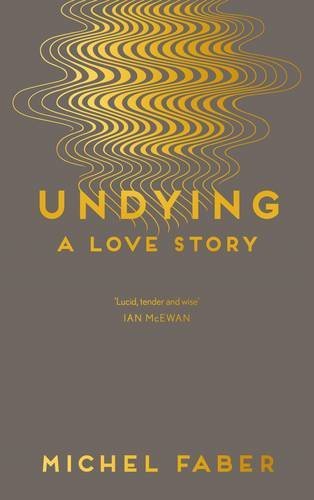 I was working on a novel that seemed to be progressing well - right through my mother’s illness - writing chapters on the airplane, in the hospital after her kidney was removed, or at her house late at night through a jet lag haze in between taking her to the bathroom. But once my mother died, I couldn’t write prose anymore. It seemed wrong: inappropriately linear; too beholden to cause and effect. Only poetry worked for me, and poetry was a lifeline - a way to inhabit the entirely new space of grief and explore the complexity of the pain I was feeling. So I understand Faber’s move away from fiction and into poetry in the wake of his wife Eva’s death. His new book, Undying, is almost like a memoir, centred around the last few weeks of Eva’s life, through the worst of her treatment and a remission, and that terrible space of mourning in the weeks and months after Eva died. The poetry sometimes undermines itself with little rhymes, but mostly it’s a powerful expression of Faber’s anger, grief and sense of loss as he begins to make sense of life without his wife. I sat blubbering through the book, crying right through to the end, which is transcendent:
I was working on a novel that seemed to be progressing well - right through my mother’s illness - writing chapters on the airplane, in the hospital after her kidney was removed, or at her house late at night through a jet lag haze in between taking her to the bathroom. But once my mother died, I couldn’t write prose anymore. It seemed wrong: inappropriately linear; too beholden to cause and effect. Only poetry worked for me, and poetry was a lifeline - a way to inhabit the entirely new space of grief and explore the complexity of the pain I was feeling. So I understand Faber’s move away from fiction and into poetry in the wake of his wife Eva’s death. His new book, Undying, is almost like a memoir, centred around the last few weeks of Eva’s life, through the worst of her treatment and a remission, and that terrible space of mourning in the weeks and months after Eva died. The poetry sometimes undermines itself with little rhymes, but mostly it’s a powerful expression of Faber’s anger, grief and sense of loss as he begins to make sense of life without his wife. I sat blubbering through the book, crying right through to the end, which is transcendent:
And it is not for me
to show you that death is not the end.
But you left lucencies of grace
secreted in the world,
still glowing. ("Lucencies (2)")
One of the poems that hit me hardest was “Don’t Hesitate to Ask” which you can hear Faber read on ABC Adelaide: https://soundcloud.com/891-abc-adelaide/michel-faber-dont-hesitate-to-ask
By way of a taster, here is a tiny bit of it, though I urge you to listen to the whole thing:
Well,
actually,
since you offer,
yes:
Would you mind driving me
headlong through the universe
at ten million miles an hour,
scattering stars like trashcans
scorching the sky?

No comments:
Post a Comment